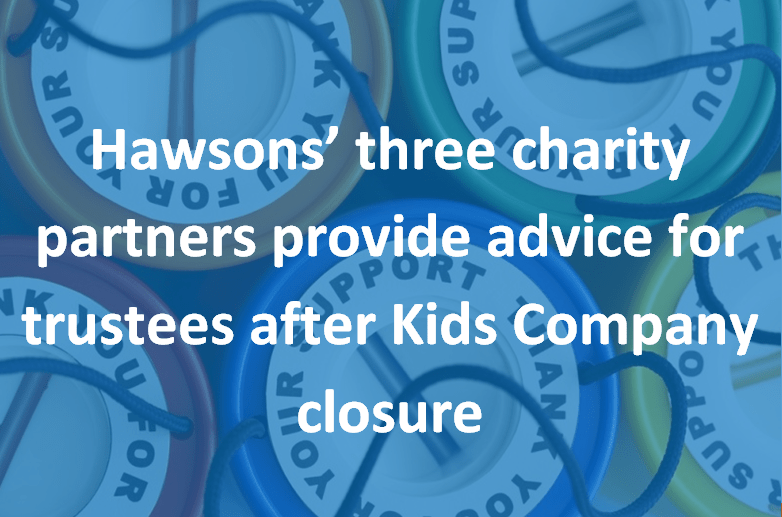Following the closure we spoke to Hawsons’ three charity partners, Paul Wormald, Richard Burkimsher and Simon Bladen to get their thoughts on what lessons trustees can learn from the Kids Company collapse.
What is the biggest lesson trustees will learn from the Kids Company closure?
What advice would you give to trustees when there is so much speculation?
What degree of transparency should there be in how funds are spent?
Are there always financial warnings?
What final advice would you give to trustees?
More from our charity experts
You can find all of our latest charity sector news and newsletters here.
If you are looking for advice in a particular area, please get in touch with your usual Hawsons contact.
Alternatively, we offer all new clients a free initial meeting to have a discussion about their own personal circumstances – find out more or book your free initial meeting here. We have offices in Sheffield, Doncaster and Northampton.
